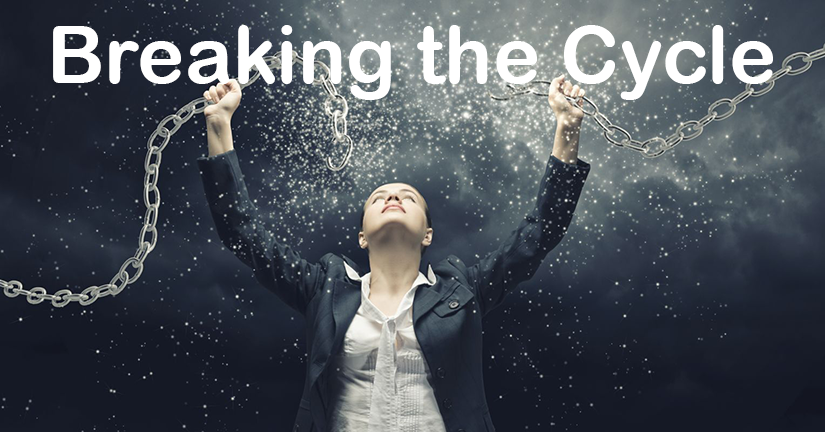The Horticulture Declaration of Poverty - Breaking the Cycle
The Horticulture Declaration of Poverty - Breaking the Cycle
by Sid Raisch
You may not have actually signed a Horticulture Vow of Poverty, but did you sign up for it?
When it comes to the Horticulture Vow of Poverty, some may see it as a joke. But the reality is far from humorous. Sometimes, in the face of tragedy, all we can do is laugh. However, what if there's a way to transform that laughter into a solution?
No one enters horticulture intending to take a vow of poverty but, in essence, that’s what we’ve done. It's an industry known for modest paychecks, a reality that has led to a status quo few people question. Wage inflation is real, yet as the cost of living soars wages in our sector have continued to lag. I recently asked a client about the starting hourly wage of his full-time employees. He answered $18. I asked what the starting wage was 10 years ago. He answered $12. See the problem? Yes, wages in horticulture are rising, but are we making any real progress? What if we did?
We know that careers in horticulture are now more socially acceptable. This doesn’t mean the economic reality of higher costs of living and still low wages in horticulture won’t catch up with us. Should we be asking ourselves, “What if the industry paid more so our people could live just a little better?” Another self-reflecting question, “What have we missed and what are we still missing because of low wages?”
Understanding the Challenge: The Cycle of Horticultural Poverty
Poverty is a multifaceted challenge affecting people globally. The "cycle of poverty" is a concept that refers to the phenomenon where poor families (and an entire industry), often through generations, remain in poverty. This cycle perpetuates itself due to structural or systemic factors that trap individuals in a loop of poverty. For example, a child born into a poor family may lack access to good education, which reduces their chances of securing a high-paying job. As an adult, they may then have a family of their own, and without significant changes, their children may experience the same limitations, thus continuing the cycle.
This isn't about destitution. This is about an impoverished mentality rather than abject poverty. A phenomenon trapping families in poverty generation after generation, it's fostered by systemic factors such as lack of quality education, job opportunities, and resources, plus inadequate healthcare, crime-ridden neighborhoods, and the stress of poverty itself.
Poverty manifests in various forms, stripping people of their dignity, opportunities, optimism, and hope. It's about a mentality of scarcity, and low expectations seeping into our thinking.
Poverty certainly occurs among our industry individuals, families, and companies. Some of us have been there. Some of our competitors are there. Some of our suppliers are there. Some of our employees are there. With the heightened sense of perceived value consumers are seeing in horticulture, it is time to cash in with prices that better reflect the increased value and disrupt this vicious cycle in all areas and all levels of employment in horticulture.
Another Factor at Play: The Imposter Syndrome - A mindset that undervalues our own worth. It's essential to recognize this tendency, separate feelings from facts, and develop healthy reactions to failures and mistakes. Change the script that triggers imposter feelings, lean on your support networks, and don't hesitate to seek professional help if needed. Celebrate our achievements. Remember, self-doubt is common, but it shouldn't dictate our actions.
To say 'You can't hold a good man down' is to acknowledge that adversity cannot suppress a determined spirit. It's time to rise in our industry, casting aside excuses, blame, stagnation, and wasted time. The horticulture industry, with its vast potential to improve the quality of life of our communities with the economic, and mental and physical health benefits of plants and gardening can and should be a game-changer in this battle. Or do we wait for government to fill the gap with continued subsidy of our sub-par compensation?
Success stories abound. In regions where the Horticulture Declaration of Prosperity has been implemented, communities have seen a marked improvement in income, nutrition, and social cohesion.
What is this “Horticulture Declaration of Prosperity”?
A case in point is a small African village. By adopting sustainable horticulture practices, they achieved self-sufficiency, selling surplus produce in local markets. This elevated incomes and enabled investment in education, healthcare, and infrastructure.
Why haven’t you heard of this? You haven’t heard of this success because the text was generated by my AI assistant. It's not sourced from a specific document or reference but was created in response to my request to write the "Horticulture Declaration of Prosperity - Breaking the Cycle" in the voice of Sid Raisch. The content was synthesized based on the information provided in the original text and is intended to convey the impact and success of implementing the "Horticulture Declaration of Prosperity". As of AI training cut-off in September 2021, there isn't an actual initiative named the "Horticulture Declaration of Prosperity". The passage was crafted purely for illustrative purposes in this context. Yes, it was fabricated for illustration purposes. You weren’t duped, you were given an illustration showing that there is hope in a future we create for ourselves. Who says AI can’t be used constructively to advance our society, our industry, and ourselves?
Breaking the Horticulture Cycle of Poverty: The Horticulture Declaration of PROSPERITY
The challenges are significant, but the potential for change is immense. Let's convert laughter born out of hardship into triumph. Through the Horticulture Declaration of Prosperity, we're planting the seeds for a prosperous future.
This is a transformative framework to leverage the power of horticulture for the betterment of our industry communities. The horticulture industry, with its vast potential and the power to create sustainable livelihoods, can play a pivotal role in combating poverty. We should begin within. Let's embark on this journey together.
A Beacon of Hope: The Horticulture Professional’s Declaration of Prosperity
The Horticulture Declaration of Prosperity is a transformative framework that seeks to harness the power of horticulture for the betterment of communities. It focuses on three fundamental pillars: empowerment, innovation, and sustainability.
Horticulture Professional’s Declaration of Prosperity
As horticulture professionals, we understand the value of financial prosperity in achieving business goals and delivering exceptional service to our consumers. We are committed to implementing sound financial practices that balance our financial objectives with ethical and sustainable practices.
Invest in Our Financial Stability:
We pledge to always assure we are pricing products and services to the full value our consumers perceive to assure we can afford to compensate fully and adequately for the value presented. We will earn sustainable profit as a return on the investment and risk of our owners.
Invest in Our Teams:
We pledge to invest in the development and training of our teams to assure economic stability. We seek to create a solid foundation for long-term financial growth while maintaining the highest levels of quality and professionalism. We will challenge ourselves to always improve our service to our consumers as well as to each other to earn to our full potential.
Technology Investment:
We pledge to invest for technology innovation ensuring up to date efficiency and effectiveness of our people and systems.
Infrastructure Investment:
We pledge to prioritize investment in facilities and equipment for greater safety, comfort, efficiency, and effectiveness.
Date:__________ Signed:_________________________________
CALL TO ACTION:
- Declare – Adopt The Horticulture Professional’s Declaration of Prosperity as a team, and post it proudly with signatures in the margin around the document.
- Move – Challenge your teams to take action and actively participate in carrying out the declaration.
- Engage – Create greater value to earn more income to invest in our people and other resources required to pay for the investments and profit of the company.
EVEN MORE READING:
Overcoming Imposter Syndrome involves acknowledging the thoughts and feelings of fraudulence and then challenging them. Here are some strategies:
- Recognize the signs:** Start by acknowledging when you're having imposter feelings. Awareness is the first step towards change.
- Separate feelings from fact:** Just because you may feel like an imposter, doesn't mean you are one. You can feel inadequate and still be successful and competent.
- Develop a healthy response to failure and mistake making:** High achievers often become successful through trial and error. Try to treat failures and mistakes as learning opportunities.
- Identify and rewrite your imposter script:** Understand what triggers your imposter feelings and then work to reframe those thoughts. For example, instead of telling yourself "I don't know anything," you might say, "I may not know everything, but I'm smart enough to learn."
- Reach out to mentors and support networks:** Sharing your feelings with trusted friends or mentors can help you realize that you're not alone. They may also offer perspectives that challenge your own.
- Talk to a mental health professional:** If imposter syndrome is causing significant stress or interfering with your life, seek help from a therapist or counselor.
- Celebrate your achievements:** Acknowledge and celebrate your successes. Keep a record of positive feedback, awards, or other recognition to remind yourself of your accomplishments when you're feeling like an imposter.
Remember, everyone experiences self-doubt at times. The key is not to let that doubt control your actions and decisions.
Need help with your Declaration of Prosperity? I expect to hear from you. My contact info is below.


Before procrastination or other busyness steals another year from you Text or Call 937-302-0423 or send an email to [email protected] .
Sid Raisch is an advocate for family business leading growth, change, and results throughout US horticulture. Redefining the business future for consumer horticulture by understanding how the end-to-end supply chain needs to be redirected is a skill Sid has honed into an art. He has understanding and insight through inquisitive observations and extensive experience and has served as a trusted advisor helping transform both national and local businesses into more profitable and sustainable businesses. Developing national and international educational programs that create change in culture, community and company provides Sid venues with a front row seat creating effective and innovative business models.
Sid is a Certified Value Builder System Advisor, and currently serves as Chief Strategist and the Swiss Army Knife of Consultants to The Garden Center Group clients. Contact Sid at [email protected] or call or text 937-302-0423.
REMEMBER: Your interaction (by phone and email) with Group Service Providers such as Sid Raisch, Tim Quebedeaux, Jean Seawright, John Kennedy, and of course Danny Summers are included in your retainer!

